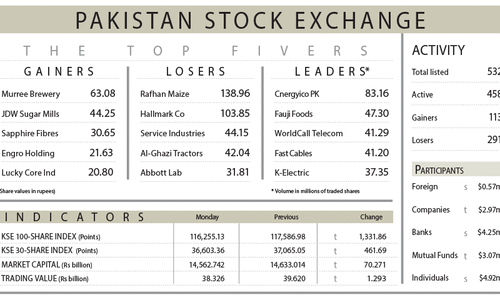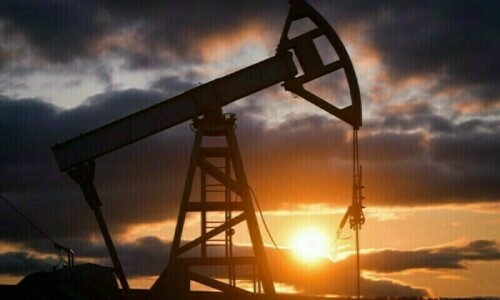BRUSSELS: Europe’s most powerful leaders were on collision course over filling Brussels’ top job on Tuesday as they gathered for a summit in the wake of elections that shook up traditional alliances.
The EU’s 28 national leaders began haggling and horsetrading over who will succeed Jean Claude-Juncker at the head of the European Commission, the bloc’s powerful executive.
EU powerbrokers France and Germany are at loggerheads over the role, although leaders insisted Tuesday’s summit dinner is about deciding policy priorities for the next five years, rather than personalities.
As she arrived, German Chancellor Angela Merkel said her countryman and party colleague Manfred Weber “naturally” had her support.
Weber is the choice of the centre-right European People’s Party (EPP), which remains the biggest bloc in the European Parliament despite losing some 40 seats in the weekend election.
But he is seen as short on charisma, has no executive experience and is opposed by French President Emmanuel Macron.
As he made his entrance, Macron insisted he did not want to talk about possible names for the job — before listing centre-left pick Frans Timmermans, EU Brexit negotiator Michel Barnier and EU Competition Commissioner Margrethe Vestager as suitable candidates while pointedly omitting Weber.
After the challenges of recent years — which have seen the EU weather the migrant crisis and the Brexit earthquake — Macron said the bloc needed someone to lead a “renewal”.
The new commission leader must fully believe in this renewal “and have the experience to achieve it,” he said.
“Because these are serious responsibilities at the European level which require experience — whether in their own country or in Europe — to have credibility and know-how,” Macron said.
The repeated references to experience and credibility will be seen as a dig at Weber, who is seen as virtually unknown beyond the European Parliament where he has spent the last 15 years.
An EU source said Weber could also seek the presidency of the European Parliament if he fails in his Commission bid — a consolation prize not open to Vestager or Timmermans.
Under EU treaty law, the European Council of 28 national leaders nominates a commission president, then the new 751-member parliament ratifies their choice.
But the procedure, while seemingly straightforward, masks a complex power struggle between rival states and ideological blocs and between the leaders and parliament itself.
Former Dutch minister Timmermans has compared the ruthless intrigue to “Game of Thrones”, and in the run-up to Tuesday’s dinner, party and national leaders met in smaller groups to plot their strategies.
The leaders of France, Spain, Belgium, Portugal and the Netherlands — all liberals or socialists — met over lunch on Tuesday and a Spanish government source said an “alliance of progressive forces” was taking form.
This could also work against the conservative Weber. Udo Bullmann, the leader of the centre-left S&D parliamentary group, said Merkel was becoming “kind of nervous” as control of the process slipped from her grasp.
Many in Brussels argue that the European project is best served by a “political commission” headed by a president with a mandate from the parliament. But most national leaders think the union’s legitimacy derives from its member states and that the Council should be able to pick one of their own — someone with leadership experience.
The EU elections saw the Liberal ALDE bloc and the Greens gain ground — ending the conservative EPP and centre-left S&D groups’ ability to form a coalition majority without their cooperation.
Published in Dawn, May 29th, 2019














































Dear visitor, the comments section is undergoing an overhaul and will return soon.